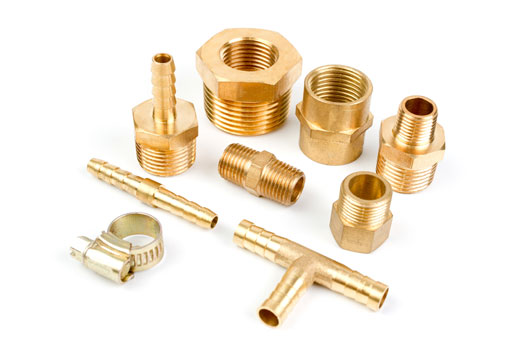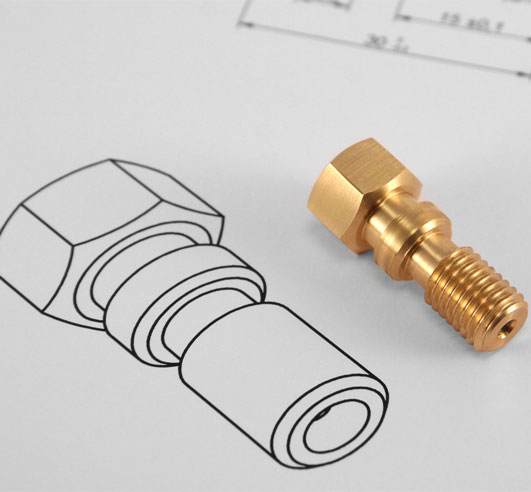As the demand for high-quality components in various industries continues to rise, precision-machining brass components has become even more crucial. Brass is a popular material for CNC (Computer Numeric Control) machining due to its exceptional machinability and a wide range of applications. This blog post will explore the advantages of using brass in CNC machining, best practices for achieving precision, and how to optimize the process for better results.
Why Choose Brass for CNC Machining?
Brass, an alloy of copper and zinc, boasts numerous benefits that make it an ideal material for CNC machining, such as:
High machinability:Brass is known for its exceptional machinability, which allows for faster speeds and feeds, ultimately leading to reduced production time and a lower cost per part.
Corrosion resistance:Brass is highly resistant to corrosion, making it suitable for components that are exposed to harsh environments or require long term durability.
Aesthetics:Brass parts have a beautiful golden color that is often sought after for decorative purposes.
Electrical and thermal conductivity:Brass conducts electricity and heat well, making it well-suited for components requiring these properties.
Non-sparking:Brass is a non-sparking material, which makes it ideal for industries where safety is of utmost concern.
Best Practices for Brass CNC Machining
With such a versatile material at hand, it's important to optimize the CNC machining process for brass parts. By implementing the following best practices, you can ensure high precision and lasting quality:
Use appropriate cutting tools:Carbide or cobalt tools work best for brass machining, as they reduce the chances of the material adhering to the cutting edge.
Optimize speeds and feeds:To achieve the highest precision, proper speeds and feeds are crucial. Consider starting with the manufacturer's recommendations and gradually adjusting them for optimal results.
Consider coolant use:Brass machinability means it can generally be machined dry, but using coolant helps control temperatures – ensuring dimensional accuracy and a better surface finish.
Workholding techniques:Securely clamping the brass workpiece ensures stability during the machining process. Various workholding devices such as vacuum chucks, vises, and collets can be used.
Minimize tool deflection:Using short and robust tooling helps minimize deflection and ensure smooth, precise cuts.
Optimizing the Machining Process for Brass Components
Once you've decided to machine brass components, it's essential to focus on achieving the best results from the process. The following approaches can maximize productivity while maintaining high precision:
Multi-tasking machines:Multi-tasking CNC machines that implement milling, turning, and drilling operations can save time by consolidating various part production processes.
Programming software:Advanced software incorporates innovative algorithms that enhance the tool path, reduce cycle times, and improve cutting efficiency.
Automated systems:Robotic systems can further reduce production time by automating tasks like material handling, part measurement, and tool replacement.
Quality checks:Routinely inspecting brass parts for quality and consistency helps ensure that your production processes are optimized.
Top Industries Utilizing Brass CNC Parts
The versatility of brass makes it an ideal choice for numerous applications across a variety of industries. Some of the top industries using brass CNC parts include:
Automotive:Brass components are widely used in automotive applications, such as gears, valves, and bearings.
Aerospace:Corrosion resistance and electrical conductivity make brass crucial for components like electrical connectors, fasteners, and fittings.
Marine:Brass is utilized in various marine components, such as boat propellers, pumps, and valve assemblies.
Electronics:The electrical and thermal conductivity properties of brass make it suitable for connectors, switches, and circuit board components.
Medical equipment:Brass parts are often found in dental tools, surgical instruments, and diagnostic equipment.
By understanding the benefits of brass as a CNC machining material, implementing best practices, and optimizing the process, brass components can be produced with high precision and durability. As industries continue to embrace brass parts, the potential for quality and innovation progresses towards infinite possibilities.
brass cnc parts quotes







